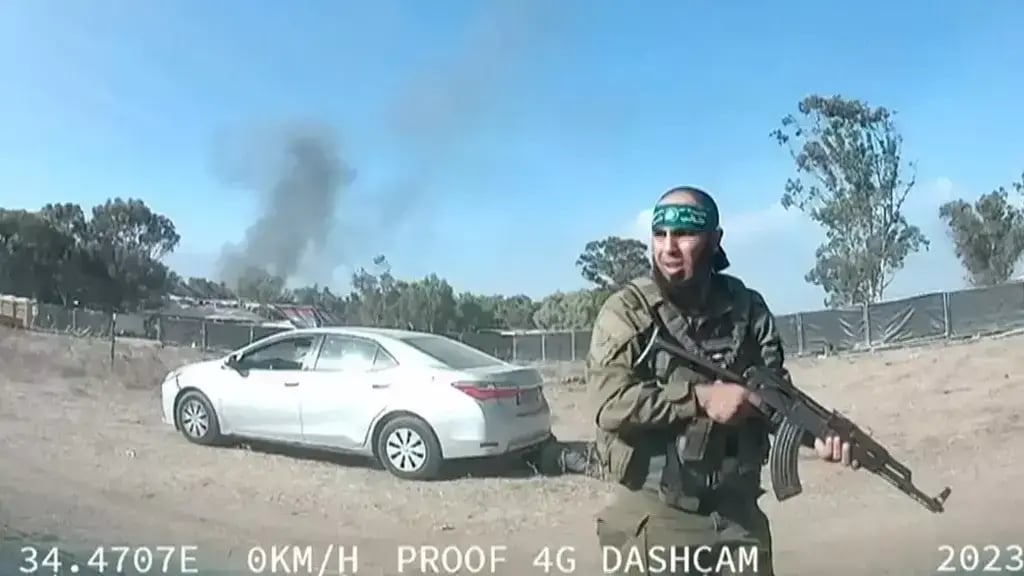Getting your Trinity Audio player ready...
"I don't sleep. Sleep was the first thing taken from me on October 7," describes Yael (a pseudonym) about her nights since the Hamas massacre in southern Israel. As a resident of the north, she deals with the consequences of the war on a daily basis, but that’s not all. Having experienced prolonged sexual abuse in her childhood, the war and the horrors that occurred on the morning of Simchat Torah on October 7 have resurfaced old traumas that give her no rest.
"I do everything to avoid falling asleep," Yael shared. "When I do, I have horrifying dreams of terrorists brutally raping me over and over again. Sometimes I escape, sometimes I don't, sometimes I save my children, sometimes I fail to save them – but rape always happens."
Nine unbearable months have passed since the outbreak of the Gaza war, and the psychological toll on the various circles of victims is only beginning to become clear. "I had a full life, and since October 7 I can't accomplish anything. I'm frozen," said Yael. "I cry every day, wake up crying and fall asleep crying. During the day, I struggle to hold back tears. I know it's hard for many people, but I think reaching this point when you already have a prior injury is different. I feel like I'm standing on a surfboard, trying to maintain balance."
Preliminary findings of research conducted by the Association of Rape Crisis Centers in collaboration with Bar-Ilan University indicate a worsening in the condition of sexual assault victims due to the war.
The main finding from the participants' accounts is a feeling of Trauma Revival. "In recent months, I have been in very dark places," Yael recounted. "As a teenager, I used to cut myself a lot. During the war months, I found myself cutting again and then wondering how I would come out of the shower without my children seeing. This is something I hadn't dealt with for years."
As internal struggles mount
The research data also reveals that 57% of victims reported worsening symptoms related to their past sexual assault. Some 53% reported an increase in flashback symptoms since the war began. Forty percent reported general feelings of anxiety. Another 36% reported an increase in intrusive thoughts related to their sexual assault, and 12% reported an increase in dissociative episodes.
"The participants described how the surprise attack, alarms and the war triggered fears and anxiety," the researchers reported. "The stress of the war brought up past memories for the victims, causing some to experience severe psychological collapse. Even those who were 'stable' before the war and felt balanced in their coping reported a deterioration in their condition due to the war and its consequences."
Among the psychological impacts described by participants were general depression, anxiety, panic attacks, stress, nightmares, flashbacks, intrusive thoughts, suicidal thoughts and fear. The physical impacts focused on various somatic problems, including sleep difficulties, trouble falling asleep, excessive sleeping, breathing difficulties, frequent crying, numbness, bodily pain, emotional eating and lack of appetite.
"One of the first and most important findings of the research is the victims' need for recognition of their condition, their unique complexity within the war context, and its consequences," explained Dr. Karmit Klar-Chalamish, director of research at the Association of Rape Crisis Centers. "It's crucial to understand that, during this period, as their condition deteriorated, therapeutic resources were reduced. The deterioration includes worsening PTSD symptoms, hyperarousal, flashbacks and intrusive thoughts, requiring treatment and emotional support. Reductions were made due to reservist conscription or redirecting therapists to treat evacuees and survivors of the October 7 events."
Terrorist crimes as a trigger
The victims in the research described how the focus on sexual assaults during the massacre and captivity triggered memories of their own past trauma. "It brings me back to when no one saved me," described Ayelet. "People don't understand that rape is death. I experience the assault on myself over and over again, and it kills me every time. Those who haven't experienced it will never understand what hell this is."
3 View gallery


A Hamas terrorist during the October 7 massacre at the music festival in Re'im
(Photo: Courtesy)
Ayelet was sexually assaulted as a child, between the ages of six and nine, by a close relative. "Everyone knew, and no one did anything, just like now. I screamed, and no one heard," she recounted. "Now, when I hear about women and girls in captivity, possibly pregnant – it paralyzes me. I can't explain how many times during this period I visited the family doctor, how many times I thought about ending it all, suicidal thoughts."
As mentioned, the characteristics of the war echo the trauma. "Similar to what happened in the war – women become tools for the humiliation of the nation," stated Professor Keren Gueta, head of the Clinical Criminology Program at Bar-Ilan University. CEO of the Association of Rape Crisis Centers, Orit Sulitzeanu, reinforced her words: "Mental health and welfare professionals must convey the message that past pains and traumas have a place. We must ensure that everyone who needs help can receive it in a timely manner to maintain personal and community resilience in the country."



